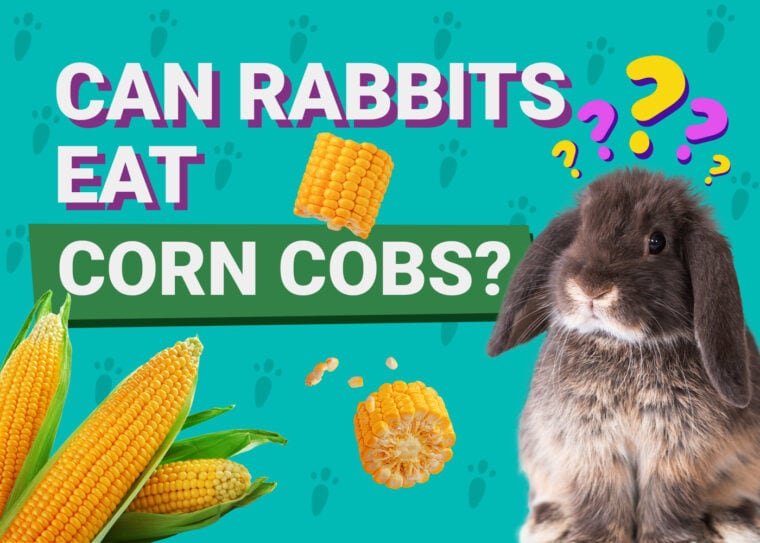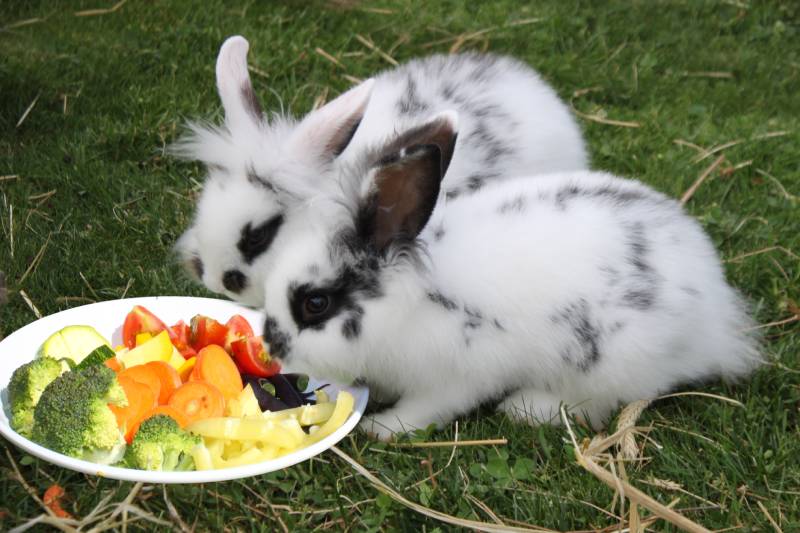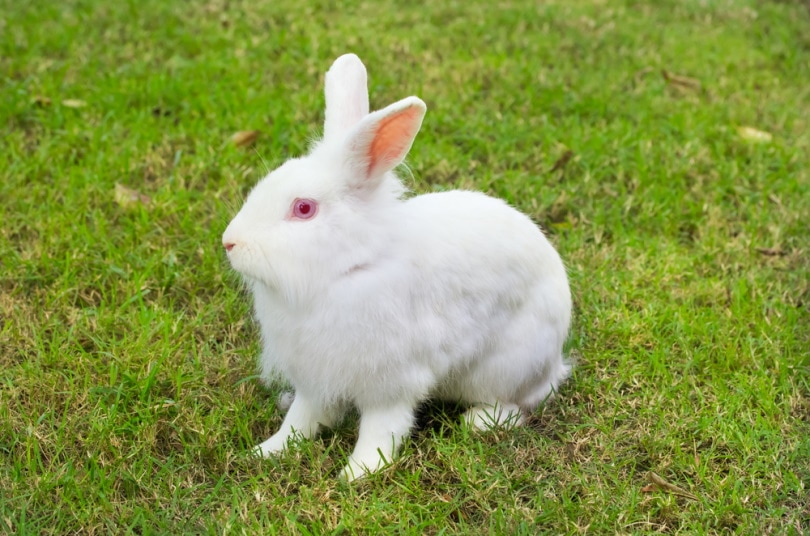
Rabbits might not be the most popular pet in the United States. However, the humanization of the market is still a thing with lagomorphs. Remember that you can litter-box train and handle them more than many small animals, making them more cuddly than other exotic pets.
A common theme with our animal companions is sharing so-called people foods as part of the bonding experience. However, it’s not a good idea to offer corn cobs to your rabbit. Animals that do eat them are usually scavenging for the left-over kernels and not the cobs. The ones that do have different digestive systems. It’s also difficult for your pet bunny to digest.
Eating Like a Rabbit
To understand why corn cobs are a no-no, it helps to learn more about the rabbit’s diet. There are 29 species in 10 genera of these animals. Our pets are part of the Old World group with the scientific name Oryctolagus cuniculus. People have raised rabbits since the Middle Ages. However, they weren’t pets initially but, rather, livestock for food.
The American Rabbit Breeders Association (ARBA) is the leading national organization. It recognizes 49 different breeds, a testament to its popularity outside of the kitchen. They are opportunistic herbivores in the wild, eating whatever vegetation they can find for their seemingly insatiable appetites. Wild rabbits are quite different from their domesticated counterparts.
Interestingly, the former is endangered, according to the International Union for Conservation of Nature and Natural Resources (IUCN). Its main threats are human-introduced diseases and habitat loss. It’s worth noting their invasiveness caused people to resort to these measures. these health conditions. That makes the domesticated bunny a lifesaver for the species that will ensure its continued existence.

Digestibility and Your Rabbit’s Health
The ideal diet for an adult domesticated rabbit provides 12% protein, up to 2% fat, up to 20% fiber, and up to 45% digestible carbohydrates. Its digestive system isn’t terribly efficient, which explains why these animals will eat their excrement to glean any additional nutrients from what they eat. The digestibility of its food highlights the difference between wild and domesticated animals.
In the wild, rabbits naturally gravitate toward highly nutritional foodstuffs. After all, it is a matter of survival. Unfortunately, this instinct also makes them prone to obesity as pets. It’s not a ruminant like a cow, which is one reason it “redigests” its food. Things they eat pass quickly through their GI tract. Rabbits need fiber and carbs to keep their system running smoothly and reduce disease risk.
You can feed your bunny a commercial pellet diet to satisfy its nutritional needs. Timothy hay is another option that is better for your pet than the long-term use of other foods like alfalfa. You should always provide fresh water for your rabbit. You’ll likely find that it drinks more readily from a bowl than a bottle. That can help ensure proper digestion and reduce the risk of other complications.
As far as corn cobs go, adults can digest them easier than younger ones, which may develop GI stress from consuming these starches. Indigestible fiber is vital for your pet’s health. The risk with corn cobs lies with bowel obstructions or GI stasis. It may not be able to metabolize them fully, given how fast food passes through its system. The other issue is that rabbits can’t vomit, making it even riskier.
The underlying reason behind these risks is that most digestion takes place in the lower part of the rabbit’s gut or large intestine. Nutrient absorption isn’t optimal, either. Nevertheless, it makes lagomorphs different from some herbivores, like cows and other ruminants. Domesticated rabbits also lack the thermal regulation capacity their wild counterparts have to live in challenging environments.

Final Thoughts
Rabbits are delightful pets for children and adults. Their friendly nature and curiosity make them enjoyable to own. A healthy diet is imperative for these animals. While fiber is a vital component, it’s better to offer your pet other sources than corn cobs. The risk of GI stasis is too high. Besides, it doesn’t provide much nutritional value. A timothy-based pellet diet is the best thing you can give your bunny.








